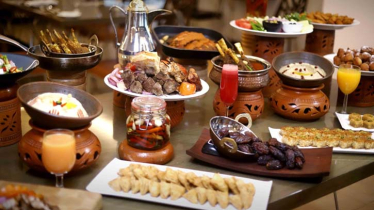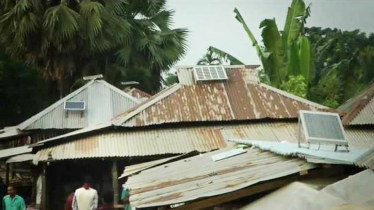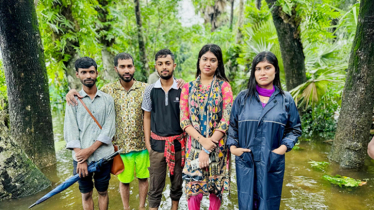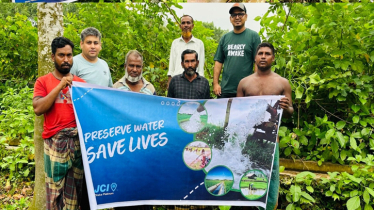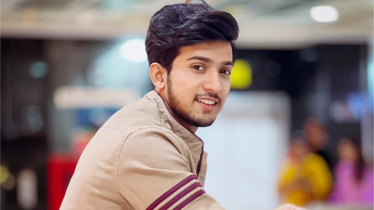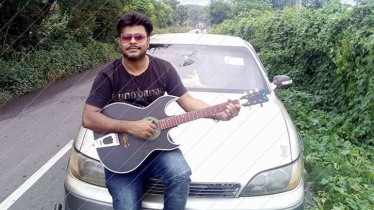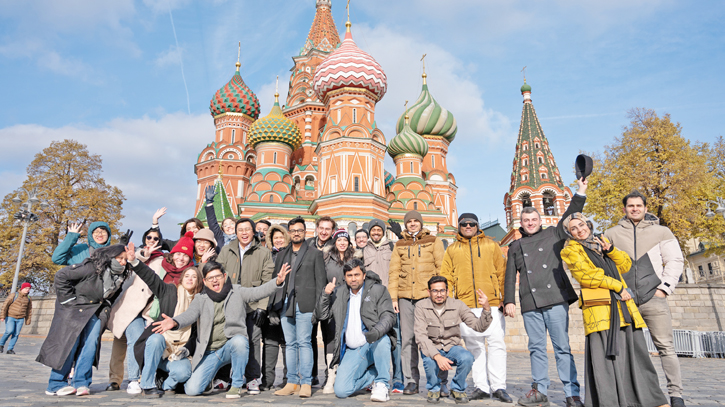
Photo: Daily Messenger
On October 14. I finalised my preparations to embark on a 7-day trip to Delhi and Hyderabad at the invitation of the Ministry of External Affairs of India. Just as everything was set, a text arrived on WhatsApp: “Dear friends, greetings from Moscow! My name is Anastasia; I work at Sputnik news agency and radio in the Department of International Cooperation. I am delighted to inform you that you have been selected to participate in the Sputnik Pro MIR New Generation programme scheduled for October 23-27 in Moscow. I look forward to meeting you here! By the beginning of next week, we hope to provide you with all the information regarding the hotel, tickets, and visa procedures. Hope to see you soon in Moscow.”
There was no way to express how much happier I was than Anastasia upon receiving the message. The catch was that I had to fly to Delhi the next morning, with the return to Dhaka scheduled for October 21. I was concerned, as visa processing for Russia usually takes 3 to 5 working days. Moreover, I would be back in Dhaka on October 21, a Saturday afternoon, which happens to be a weekend holiday for the Russian Embassy in Dhaka. Meanwhile, we received another update from Moscow that our flight had been moved forward one day to October 22, adding to the challenge. There was no guarantee it would work out. Then I recalled the wise words of my daughter, a student of class one, who always said, “Those who try never fail” (a dialogue from the popular cartoon ‘Motu Patlu’). Convinced by this, I provided details to Anastasia in Moscow on the advice of Proshanta Dada (Proshanta Kumar Barman) of the Russian Culture Centre in Dhaka, who assured me.
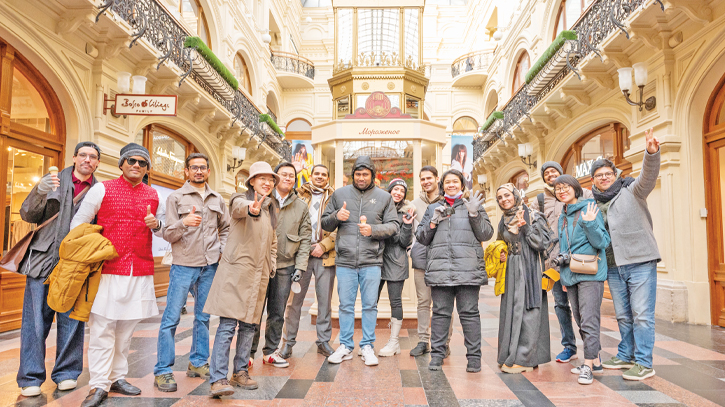
Returning from Hyderabad on October 21 at noon, I landed in Dhaka and went straight to the Russian Embassy at 3:30 pm. With the sincere cooperation of the visa officer, I submitted the passport in 30 minutes, collected the visa, returned home, and prepared to go to Moscow.
The flight from Dhaka was at 9 am. Dhaka Tribune's Chief Reporter Asif Ali Shaon joined me. We arrived at the airport on time, cleared immigration, and had breakfast at the Bank Asia Lounge. Another colleague from Somoy TV joined us from Dhaka. After a 5-hour journey with Air Arabia, I reached Sharjah. After an 8-hour transit, I arrived at Domodedovo Airport (DME) at 1:00 pm local time, flying with Air Arabia again. After completing immigration, I came out with the luggage and found Adel was there to receive us. Our Moscow days and nights had officially begun.
Moscow is about 900 years old. During this long time, Moscow and the whole of Russia have gone through many ups and downs, including fights between European monarchs, Mongol invasions, numerous uprisings during the tsarist era, and the rise and fall of the Soviet Union. Moscow still bears witness to its thousand-year history. The old houses of Moscow are the greatest examples of this history. These thousands of years old houses are kept sparkling even today, as if freshly brushed and painted. Stepping inside these houses feels like stepping back in time.
The thousand-year history of Moscow extends beyond its historic houses. Moscow's streets, churches, temples, and museums all bear witness to this rich history, which encapsulates courage, heroism, struggle, and sacrifice—a source of pride for Muscovites and Russians alike. Anyone who visits Moscow could be a witness to this history. The millennia-old history seems almost alive within the city.
Moscow, being a vast and sprawling city, presents a challenge to explore in its entirety at once. Therefore, it can be divided based on individual interests. For instance, those intrigued by the emperor’s immense wealth should visit the Kremlin Palace. The formal 'Cross Hall' within the palace, built for the then Bishop of Moscow, Patriarch Nikon, in the mid-seventeenth century, hosted feasts for Russian emperors, tsars, and ambassadors.
For enthusiasts of Soviet history, Lenin's mausoleum is a must-visit. Interestingly, at the hotel reception, I learned that the majority of visitors to the tomb come from communist or ex-communist countries, such as China, North Korea, Cuba, or Germany. Located outside the Kremlin walls, Lenin's mausoleum requires queuing at the other end of Red Square for those paying their respects. One can reach Lenin's body, preserved by chemicals since 1924, after a considerable wait.
The Moscow Metro is another notable feature, with each station treated as a work of art—some adorned with white stone or gold work, others featuring frescoes. Servicing 7 million people daily with 16 routes and 224 stations, the metro operates efficiently, with a train arriving every two minutes. To explore without crowds, it's advisable to take the metro on Saturday and Sunday mornings or after 8 pm on other weekdays. Notably, some escalators take two and a half to three minutes due to the depth of many underground stations, such as Park Pobedi station at 276 feet (84 m).
The Red Square, a tourist centre rich in historical monuments and beautiful architecture, is steeped in tradition and history, attracting thousands of travellers daily. Adjacent to the Kremlin, the centre of Russia's administrative power, each building on the four sides of the Red Square, adorned with various artistic patterns, stands as a sculpture. While most buildings are red, some display touches of red, contributing to the square's name. Red Square, aside from its colour, is believed to have other historical reasons for its name, as red was considered a symbol of beauty in Russia during that era.
Red Square is surrounded by many monuments from antiquity and the Tsarist rule, which provide a historical context of Russia. In modern times, following the Soviet Socialist Revolution, Red Square is also recognized as the memorial site of the Communist Revolution. Initially, it served as the main commercial centre of Moscow, but it has since become a venue for various national and state events of the post-tsarist Soviet era and present-day Russia. Today, it stands as one of the premier tourist centres in Russia and the world.
This historic square houses the famous Moscow clock, installed in 1625 in the Saviour Tower or Spasskaya Tower. The clock, adorned with 28 kg of gold for the watch face, rim, and time-indicating numerals, weighs a total of 25 tons. It is situated around the 233-meter-high Xavier Tower, adding to Moscow's architectural allure.
Red Square is also home to St. Cecilia Cathedral Church, built by Tsar Ivan in the 16th century. Although originally constructed for Christian worship, the church now serves as another attraction in Red Square due to its extraordinary architecture and craftsmanship. Currently functioning as a museum, it adds to the historical richness of the square.
Additionally, Red Square boasts the world's largest shopping complex, built by Tsar Alexander I of Russia in 1812. This spectacular building is now repurposed as a shopping complex.
My maiden visit to Russia's bustling metropolis, made possible through the Sputnik Pro MIR New Generation programme by Sputnik News Agency, significantly enhanced my comprehension of both the city and the nation. Engaging with journalists from different countries across diverse continents provided me with valuable insights, expanding my perspective on global media landscapes.
My fondness for Moscow extends beyond its historic sites. The residential buildings, ranging from 9 to 16 floors, create a cityscape characterised by lots of trees, open spaces, and unusually wide roads—a vertical garden city. What captivates me most is the absence of discrimination among people. In Moscow, it's challenging to discern whether someone is a doctor, engineer, or factory worker based on their houses, clothes, or appearance. Private vehicles are rare, and everyone patiently queues in shops. Basic necessities are readily available, and notably, food is affordable. The clean and shiny roads, coupled with a sense of human equality, make Moscow a society that aligns with the ideals we often dream of.
The writer is the publisher of The Daily Messenger
Messenger/Alamin

